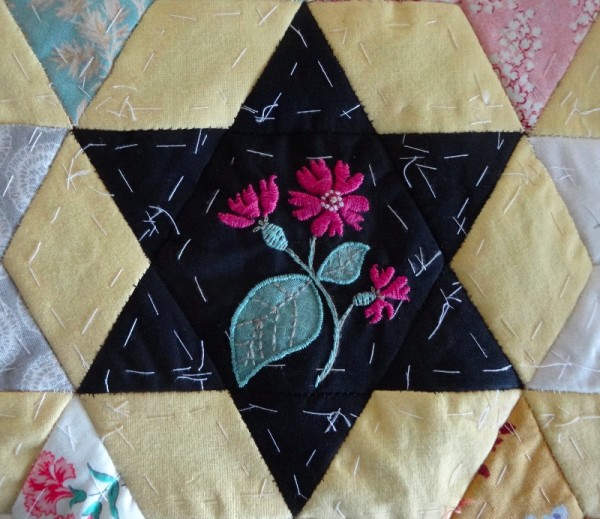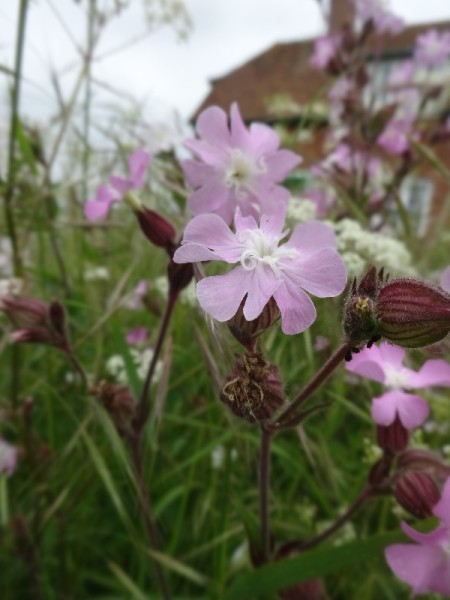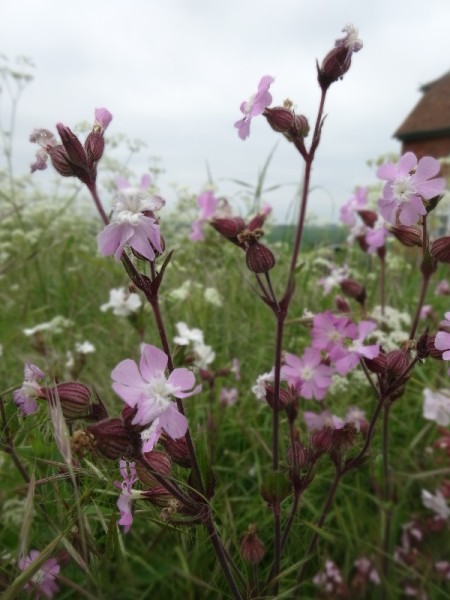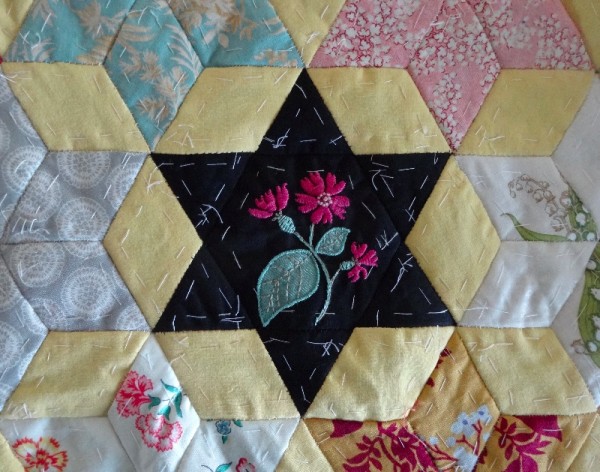As bluebells finish flowering, red campions start to appear and sometimes if you’re lucky you may find flourishing patches of both plants, one nudging into another. The bluebells have waned and yet there has been no sign of the cheery pink of the campion which can enliven the end of May when few flowering plants have got going – that is until today, when I crossed the road from the church to the fields and found a group field side of the long grassy verges. These were not as bright pink as the ones I have embroidered and I suspect that, outnumbered as they were by their white relative, these were the result of the pink crossing with the white which happens often.
The red campion or Silene dioica takes its name rather cruelly from Silenus, the drunken, though faithful companion of the god Bacchus (the little podgy man riding a donkey on the extreme right in the National Gallery’s Bacchus and Ariadne painted by Titian), presumably for no better reason than the deep pinky red colour is shared by both drunken faces and this rosy little flower. The dioica bit is fortunately more interesting. Meaning, two houses, it refers to the fact that each red campion plant has flowers of one sex only (so two plants are needed to make the seed). Female flowers have 5 styles, while male flowers have 10 stamens and a small non functioning ovary. My flower must be male as – more by luck than judgement – there are 10 little french knots and a slightly bigger one in the middle. When I drew this, I had no idea of this complexity but am relieved at a surprisingly accurate depiction. I should, however, have made the stem much more red than green.
White campion does not have this dioican feature and yet it will happily hybridise with its pink cousin and even produce fertile hybrids – and I suspect this is what has happened to the ones I photographed this morning.
This afternoon, a green woodpecker was having a good time digging a hole in our front garden while a goldfinch watched from a nearby fence. Their colouring was so similar for a moment I thought I was looking at an ordinary sized bird and a veritable giant of the species. Of course as soon as the digger popped his head out of the hole I could see I was wrong but for a moment there I held my breath. I read somewhere last week that the reason we are getting more goldfinches is because we are giving our garden birds such superior feeds but goldfinches growing to the size of woodpeckers is perhaps taking the idea a bit too far!





4 Comments
It’s a very delicate looking flower, isn’t it, but yes, your embroidery is much closer to the colour I would expect!
I shall look out for the darker ones and add a photograph when I find one – I hope i find one.
I was an avid wild flower collector as a child and remember very well the little red campion, such a pretty flower. Your embroidery is very close to how I imagine it too. Interesting how flower species intermingle, like the spanish and english bluebell has done. Still, I think I prefer the original red campion which seemed to just grow everywhere along with rose bay willow herb. I wish I still had all my albums of neatly pressed and labelled flowers, they would have been a wonderful record of what grew back in the 60’s British countryside. Sadly my parents burnt all my things for reasons best known to them. Ah, well.
Hope all goes as you would wish…. Very best as always.
So sad about your pressed flower albums – it’s easy to get rid of things you think your children won’t want only to find a few years later they would have been a lovely record of the countryside n years ago and also that the next generation would have loved them. Decisions on whether to keep such things are very hard when you move – as we are finding.
I am sure the red campion is still around – it was a very few years ago – it’s just hiding on the non road side of hedges I think.